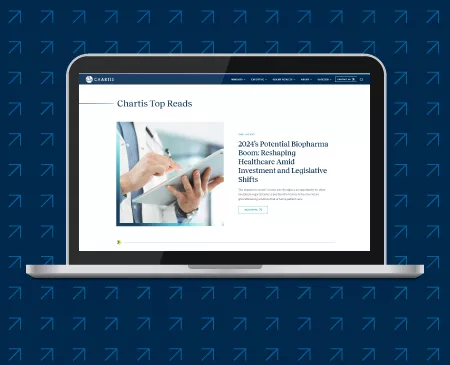The Buzz This Week
Arkansas has become the first state to ban pharmacy benefit managers (PBMs) from owning or operating retail or mail-order pharmacies. Governor Sarah Huckabee Sanders signed HB 1150 into law on April 16. Starting in 2026, PBM-owned pharmacies will no longer be eligible for licensure in the state.
The law targets vertical integration in healthcare, a move Arkansas lawmakers say is aimed at increasing transparency and reducing prescription drug costs. This includes PBM ownership of both brick-and-mortar retail pharmacies and mail-order operations, which PBMs commonly use to steer patients toward in-network services.
Supporters of the law say PBMs’ dual roles as pharmacy operators and claims processors create conflicts of interest. According to the Federal Trade Commission (FTC), the three largest PBMs—CVS Caremark (CVS Health), Express Scripts (Cigna), and OptumRx (UnitedHealth Group)—handled about 80% of US prescription claims in 2023.
Opponents of the law, including CVS Health and the Pharmaceutical Care Management Association (PCMA, the national PBM trade association), warn that the law could lead to pharmacy closures, disrupt medication access, and potentially increase healthcare costs. CVS has stated it may be forced to close 23 pharmacies in Arkansas, impacting both patients and employees. UnitedHealth’s pharmacy subsidiary Genoa, which operates 11 locations focused on mental health services, may also be forced to exit Arkansas.
Pharmacy groups are supportive of the law, arguing it helps independent pharmacies. Other states have introduced similar legislation, including Texas, Vermont, and New York. In addition, attorneys general from 39 states and territories are calling on Congress to adopt a nationwide ban on PBMs owning pharmacies, citing potential anticompetitive practices.
Why It Matters
The new Arkansas law signals a shift in how states are willing to regulate vertically integrated healthcare entities, particularly those that both manage pharmacy benefits and own or operate pharmacies. HB 1150 targets companies that run both a PBM and a pharmacy, including mail-order operations, which are common among major players like CVS Health (Caremark), UnitedHealth Group (OptumRX), and Cigna (Express Scripts).
While the law does not restrict PBMs from contracting with retail pharmacy networks, it does prohibit them from owning or operating pharmacies in the state. This effectively forces them to choose between continuing their PBM operations or maintaining a pharmacy presence in Arkansas.
The Arkansas law reflects ongoing concerns among other regulators and policymakers about PBM market dynamics. In Michigan, for example, state officials have sued Express Scripts and Prime Therapeutics, alleging their agreement contributed to limited pharmacy access and lower reimbursement rates for independent pharmacies—resulting in what plaintiffs describe as unusually high market concentration by a single PBM.
The Arkansas law could disrupt longstanding business models designed to manage care and costs across the healthcare ecosystem. While supporters of vertical integration say it can improve care, regulators warn that PBMs favor their own pharmacies and reimburse competitors at a lower rate.
The FTC has raised concerns that such practices may reduce competition and drive-up overall healthcare spending.
If similar legislation spreads to other states—or gains traction at the federal level—companies may face increased operational complexity, potential revenue loss, and heightened scrutiny over consolidation practices.
For independent pharmacies and consumer advocates, the law represents a win for greater fairness and transparency. But for large integrated payers, Arkansas may be the starting point of a broader regulatory shift that challenges their vertically integrated strategies and reshapes the pharmacy benefit landscape nationwide.
For patients, the closure of 34 pharmacies poses serious concerns for patient access, especially in communities where the closed location is the only pharmacy in town or fills the majority of local prescriptions. Patients served by the 11 affected mental health-focused pharmacies may be particularly vulnerable to treatment disruptions.
RELATED LINKS
Drug Store News:
CVS may close stores in Arkansas following law banning PBMs from owning pharmacies
Healthcare Dive:
Arkansas passes law banning PBMs from owning pharmacies
Modern Healthcare:
State AGs urge Congress to break up PBMs
Stat News:
Arkansas may force companies to choose between running a PBM or pharmacies







